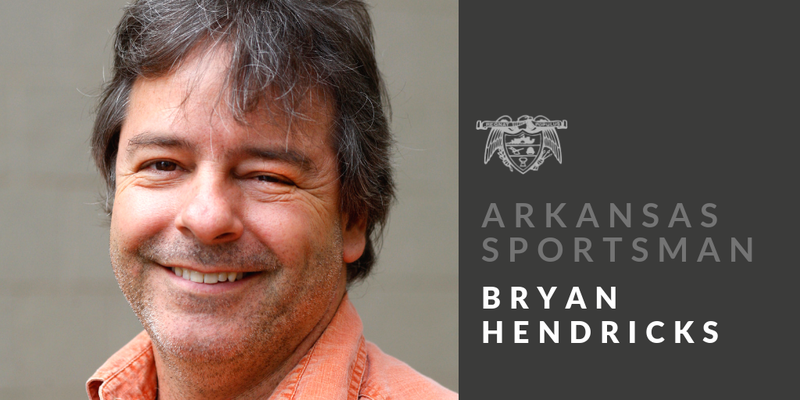Jess "The Undertaker" Essex of DeWitt says that blowing a duck call is similar to singing opera.
Yes, I had the same reaction when he said it as you are probably having now, but you need to hear the man out.
Essex, who makes frequent cameos in this space, is a lifelong duck hunter and a highly competent duck caller. He is also a highly competent and highly accomplished baritone who has sung with the University of Arkansas Schola Cantorum, The Arkansas Symphony Chorale under Maestro David Itken, The Opera Memphis Chorus under William Jones and the Arkansas Choral Society. He is proudest to sing regularly in the choir at the First United Methodist Church of DeWitt, directed by Majorie Jenkins.
"She turned down a voice scholarship to Juilliard to come home, marry a lawyer and raise a family," Essex said.
"How do really good singers like yourself cope with that one person with the high, brassy voice that can't sing in tune, can't sing in pitch, but sings over the whole choir?" I asked.
"There is no such person in the DeWitt FUMC choir," Essex said coolly.
This conversation occurred after the Arkansas Symphony Orchestra's annual performance of Handel's "Messiah," at Calvary Baptist Church in Little Rock. As always, Essex sang in it, and quite capably, as always. And, as always, the conversation deftly pivoted to duck hunting.
"I never enjoyed going to the duck calling contest in Stuttgart," Essex said. "Nobody blows a duck call like that in the duck woods, and if they did, they'd scare away every duck in the county, but that's not what that's about. When you blow a duck caller in a contest, you're not calling ducks. You're singing a song."
Judges at a duck calling contest judge a caller on their ability to control the instrument.
"They want to hear how long and how well you can make that noise," Essex said. "What it takes to do a good job blowing a duck caller and to sing well takes the same kind of physical application to do both of those things."
Duck callers and singers use different terms to describe the same things, Essex said.
"When voice majors are being taught to sing, they tell you that you must create a 'column of air'," Essex said. "That column of air forms at the base of your bowel and goes through entire respiratory system until it comes out of your mouth."
The same method applies to blowing a duck call. It's called blowing from the gut.
"For a voice major, the sound comes from two pieces of muscular membrane stretched across your windpipe," Essex said. "What creates noise for a duck caller is some piece of man made material. When you have a column of air forcing itself out of your body, instead of going over vocal cords, it vibrates a reed across the shallot, or tone board as duck caller manufacturers call it."
Essex said he made the connection when he examined pipes of a pipe organ. Their design is very similar to that of a duck call.
"That was a revelatory thing to me," Essex said. "When I saw that, I realized we're not far away from one another."
Singing loud is not necessarily singing well, just as blowing a duck loudly does not mean you're blowing it well. It is more important for a duck caller to produce a clean, consistent tone with correct intonation, cadence, tempo and pace. It takes a lot of practice, but it also requires proper mechanics.
"Stand with an erect posture," Essex said. "Don't tighten up all the muscles in your torso and abdomen. Draw in as large a breath as you need to draw by using abdominal muscles and let that fill your lungs. When you're ready to expel air, constrict your abdominal muscles and force it out."
Essex said he connected the dots when he noticed that his singing voice was always in top shape after duck season.
"When I was really working hard at being a singer, after a long season where ducks really made me work, after sixty days of arduous calling, I could sing like a son-of-a-b****," Essex said. "I was always 'in voice.' I required no warmup. I was ready. It had nothing to do with singing, but it had everything to do with singing because the technique of producing good tone with a duck call are the same as good singing."
It's all about breath control. Every great singer has precise breath control, as does every great duck caller. The perfect example, Essex said, is Frank Sinatra, who learned breath control from his boss Tommy Dorsey, a trombonist.
"Pavoratti and (Placido) Domingo touch on that in their Master Classes," Essex said. "Breath control is everything. If you can't deliver the goods, you can't give service to the music."
